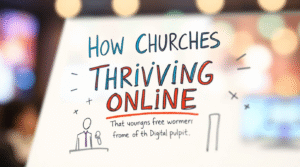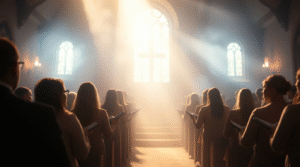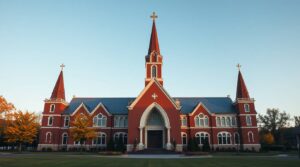The role of the church in modern society continues to evolve, reflecting changes in culture, politics, technology, and community life. While its traditional spiritual mission remains central, today’s church often plays a broader role—supporting communities, offering moral guidance, and addressing social issues. Whether through charitable outreach or influencing ethical debates, the church maintains a significant presence across many facets of contemporary life.
Moral and Ethical Guidance
One of the primary roles of the church is to provide moral and ethical direction. In a world filled with rapid change and complex dilemmas, people often look to religious institutions for answers on issues like justice, equality, and human dignity. The church helps individuals navigate questions of right and wrong, often advocating for compassion, forgiveness, and service to others.
Community Support and Social Services
Modern churches are deeply involved in community development and social outreach. Many run food banks, shelters, educational programs, and health clinics. They provide vital support for low-income families, refugees, the homeless, and those recovering from addiction. In areas underserved by government services, churches often step in to fill the gap, acting as both spiritual and social lifelines.
Common Church-Based Services
| Service Type | Description |
|---|---|
| Food Assistance | Food pantries, meal programs, and soup kitchens |
| Housing Support | Shelters and transitional housing |
| Youth Programs | Mentoring, tutoring, and recreational activities |
| Counseling | Grief, marriage, and crisis counseling |
| Health Services | Free clinics and health screenings |
Promoting Social Justice
Many churches advocate for social justice, taking stands on issues like racial equality, poverty, climate change, and immigration. Through public statements, peaceful protests, and policy advocacy, churches often amplify the voices of marginalized communities. While not all congregations are politically active, those that are can be powerful catalysts for social reform.
Interfaith Dialogue and Unity
In an increasingly diverse and globalized world, the church often plays a role in promoting interfaith understanding. By engaging in conversations with other religious traditions, churches help build bridges and reduce tensions. These efforts encourage tolerance, mutual respect, and cooperation across religious and cultural divides.
Challenges Facing the Modern Church
Despite its contributions, the church faces significant challenges in modern society. Declining attendance, especially among younger generations, raises concerns about relevance. Some institutions struggle with scandals, political polarization, and adapting to digital culture. These issues test the church’s credibility and push it to evolve while holding onto its core mission.
The Church and Technology
Modern churches increasingly use technology to stay connected with their congregations. Live-streamed services, podcasts, and social media outreach have become commonplace. These tools help the church reach broader audiences, especially during times of crisis, such as the COVID-19 pandemic.
The church remains a vital part of society, offering spiritual support, moral clarity, and community aid. As it continues to adapt to modern challenges, its impact—though sometimes transformed—is far from diminished. By staying engaged with social issues and embracing innovation, the church can maintain its relevance and serve as a guiding light in an ever-changing world.











